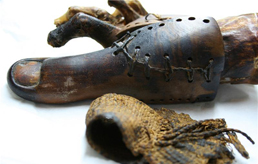Schizophrenia in a Dish
Researchers have re-created dysfunctional brain cells from the skin of a schizophrenic patient.

Researchers have re-created dysfunctional brain cells from the skin of a schizophrenic patient.
A new study links a failing sense of irony to a form of early-onset dementia.
Autistic people use their brains differently than non-autistics when processing visual information.
Over the past few centuries, women's skulls have grown closer to the size of men's, at least in one part of the world.
Prisoners up for parole stand a better chance with a judge who's just had a meal break.
Children’s brains grow very rapidly, and now scientists are finding that adult brains can grow quickly, too.
New research lets people with severe disabilities rapidly switch between different communication and assistive devices.

Justice and lunch breaks, autism and visual processing, a case of beat deafness, and the hormone of smell.
A new study finds a relationship between the timing of unexpected home team losses and domestic violence.

Football and family violence, rooting out insects, a question of taste, and a bird's eye view for danger.

A new generation of self-conscious robots, how sunshine affects drugs in the body, new research into the prevention of cleft lips, why it's hard to stay focused for long periods of time, and what sound recordings can tell us about the health of natural habitats.
EEG brain scans may someday allow doctors to identify – and treat – babies at risk for autism.

An early screening test for autism, a car controlled by thoughts, the safety of fruit seeds, blaming the hero, and testing an ancient Egyptian prosthetic.
The immune systems of chronically lonely people switch from fighting viruses to fighting bacterial infections.
